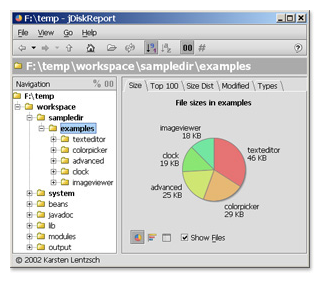 Are you REALLY, REALLY paranoid these days? Do you want to be ABSOLUTELY SURE that nothing bad can “get” you while surfing? Then you need this week’s GSotW!
Are you REALLY, REALLY paranoid these days? Do you want to be ABSOLUTELY SURE that nothing bad can “get” you while surfing? Then you need this week’s GSotW!
Trustware BufferZone
“BufferZone creates an isolated environment called the Virtual Zone. The Virtual Zone ‘buffers’ your PC from all forms of known or unknown attacks that originate from the Internet and external devices. All of your private information is secured in a trusted and separated environment.
How does BufferZone Technology work?
When you use the Internet, programs from the Web can enter your PC uninvited or invited (by downloading). In order to run, these programs make modifications to your hard drive and registry (operating system). Usually such modifications are harmless. However, when they’re not, infected programs or files can do serious damage to your computer.
BufferZone patented ‘Threat Virtualization’ technology
With BufferZone, all programs or files that enter your computer through downloading, browsing or uploading with external media devices are redirected to a Virtual Zone (C:\Virtual). C:\Virtual is a special directory in your computer’s registry that keeps external programs and files in an isolated environment, separated from your trusted personal files and your PC’s operating system.
All files, personal information, drivers and system resources remain invisible to threats and therefore protected from costly or irreversible damage. Viruses, bots, worms, Trojan Horses, phishing, keyloggers, spyware and other malicious code are prevented from covertly installing on your PC.
Modifications from infected programs, files or problematic websites will run only inside C:\Virtual. Inside the Virtual Zone, infections are easily contained and changes can be reversed. The Virtual Zone keeps your computer and trusted files clean and safe.
Anti-virus programs identify only known viruses and then react. This conventional method allows unidentified threats to penetrate and infect your PC. BufferZone technology isolates all threats (known, unknown/zero-day) inside the Virtual Zone. This way, with BufferZone Pro, you can use all browsers and chat programs, share with P2P and use external devices and download from the Web with total peace of mind.



 This is a nice, free, Java-based app that discovers your large disk “hogs” and reports them to you! Sort of like
This is a nice, free, Java-based app that discovers your large disk “hogs” and reports them to you! Sort of like  Cool Geek Culture! Now you can play an old DOS game from 1994 in the Chrome Browser or the Chrome OS! Nostalgia rules!
Cool Geek Culture! Now you can play an old DOS game from 1994 in the Chrome Browser or the Chrome OS! Nostalgia rules! Are you REALLY, REALLY paranoid these days? Do you want to be ABSOLUTELY SURE that nothing bad can “get” you while surfing? Then you need this week’s GSotW!
Are you REALLY, REALLY paranoid these days? Do you want to be ABSOLUTELY SURE that nothing bad can “get” you while surfing? Then you need this week’s GSotW!